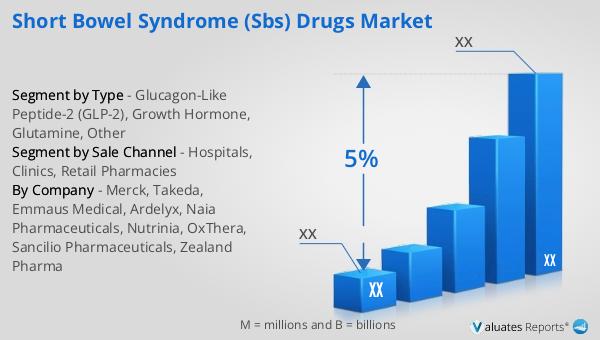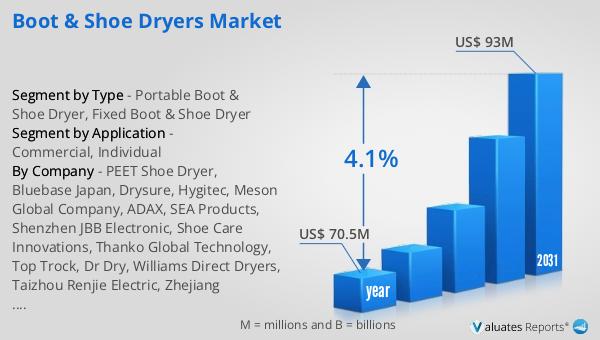What is Global Short Bowel Syndrome (SBS) Drugs Market?
The Global Short Bowel Syndrome (SBS) Drugs Market is a specialized segment within the pharmaceutical industry that focuses on the development and distribution of medications designed to treat Short Bowel Syndrome (SBS). SBS is a complex medical condition that arises when a significant portion of the small intestine is missing or has been surgically removed, leading to malabsorption and nutritional deficiencies. This condition can result from congenital defects, surgical removal due to disease, or trauma. The market for SBS drugs is driven by the need to manage the symptoms and complications associated with this syndrome, which can include severe diarrhea, dehydration, and malnutrition. The primary goal of these medications is to enhance the absorption of nutrients and fluids, thereby improving the quality of life for patients. The market is characterized by ongoing research and development efforts to create more effective and targeted therapies, as well as collaborations between pharmaceutical companies and healthcare providers to ensure the availability and accessibility of these treatments. As awareness of SBS increases and diagnostic techniques improve, the demand for effective drug therapies is expected to grow, making this a dynamic and evolving market segment.

Glucagon-Like Peptide-2 (GLP-2), Growth Hormone, Glutamine, Other in the Global Short Bowel Syndrome (SBS) Drugs Market:
Glucagon-Like Peptide-2 (GLP-2) is a significant component of the Global Short Bowel Syndrome (SBS) Drugs Market. GLP-2 is a naturally occurring hormone that plays a crucial role in intestinal growth and function. In the context of SBS, GLP-2 analogs are used to enhance the absorptive capacity of the remaining intestine, thereby improving nutrient uptake and reducing the need for parenteral nutrition. These drugs work by stimulating the growth of intestinal villi, increasing blood flow to the gut, and reducing gastric motility, which collectively contribute to better nutrient absorption. Growth Hormone is another critical therapeutic option in the SBS drugs market. It is used to promote intestinal adaptation by stimulating the growth of the intestinal mucosa and increasing the absorptive surface area. Growth hormone therapy can help reduce the dependency on parenteral nutrition by enhancing the body's ability to absorb nutrients naturally. Glutamine, an amino acid, is also utilized in the treatment of SBS. It serves as a primary fuel source for enterocytes, the cells lining the intestine, and supports the maintenance and repair of the intestinal lining. By providing the necessary nutrients for cell growth and repair, glutamine supplementation can aid in the adaptation process of the remaining intestine. Other therapeutic options in the SBS drugs market include various nutritional supplements and medications that address specific symptoms or complications associated with the condition. These may include anti-diarrheal agents, electrolyte solutions, and specialized dietary formulations designed to optimize nutrient absorption. The development and availability of these diverse treatment options reflect the complexity of managing SBS and the need for a multifaceted approach to care. The SBS drugs market is characterized by ongoing research and innovation, with pharmaceutical companies investing in the development of new therapies and formulations to improve patient outcomes. As our understanding of SBS and its underlying mechanisms continues to evolve, the market is likely to see the introduction of more targeted and effective treatments. Collaboration between researchers, clinicians, and industry stakeholders is essential to advancing the field and ensuring that patients with SBS have access to the best possible care.
in the Global Short Bowel Syndrome (SBS) Drugs Market:
The Global Short Bowel Syndrome (SBS) Drugs Market encompasses a wide range of applications aimed at addressing the diverse needs of patients with this complex condition. One of the primary applications of SBS drugs is to enhance nutrient absorption in patients who have undergone significant intestinal resection. By improving the absorptive capacity of the remaining intestine, these medications help reduce the reliance on parenteral nutrition, which is often necessary for patients with severe SBS. This not only improves the quality of life for patients but also reduces the risk of complications associated with long-term parenteral nutrition, such as infections and liver damage. Another important application of SBS drugs is the management of diarrhea, a common and debilitating symptom of the condition. Medications that slow down intestinal transit time and increase fluid absorption can help alleviate diarrhea, thereby improving hydration and nutrient uptake. This is particularly important for pediatric patients, who are at a higher risk of dehydration and malnutrition. In addition to these core applications, SBS drugs are also used to address specific nutritional deficiencies that may arise due to malabsorption. This can include supplementation with vitamins, minerals, and amino acids that are essential for overall health and well-being. By providing targeted nutritional support, these medications help prevent complications such as anemia, osteoporosis, and immune dysfunction. The SBS drugs market also includes therapies aimed at promoting intestinal adaptation, a natural process that occurs after intestinal resection. By stimulating the growth and function of the remaining intestine, these therapies can enhance nutrient absorption and reduce the need for additional medical interventions. This is particularly important for patients with severe SBS, who may have limited options for surgical intervention. Overall, the diverse applications of SBS drugs reflect the complexity of managing this condition and the need for a comprehensive approach to care. As research and development efforts continue to advance, the market is likely to see the introduction of new and innovative therapies that further improve patient outcomes. Collaboration between healthcare providers, researchers, and industry stakeholders is essential to ensuring that patients with SBS have access to the best possible treatments and support.
Global Short Bowel Syndrome (SBS) Drugs Market Outlook:
The global pharmaceutical market was valued at approximately 1,475 billion USD in 2022, demonstrating a steady growth trajectory with a compound annual growth rate (CAGR) of 5% projected over the next six years. This growth is indicative of the increasing demand for pharmaceutical products across various therapeutic areas, driven by factors such as an aging population, rising prevalence of chronic diseases, and advancements in drug development technologies. In comparison, the chemical drug market, a subset of the broader pharmaceutical industry, has also shown significant growth. It was estimated to have increased from 1,005 billion USD in 2018 to 1,094 billion USD in 2022. This growth reflects the ongoing demand for chemical-based medications, which continue to play a vital role in the treatment of a wide range of medical conditions. The expansion of the chemical drug market is supported by continuous research and development efforts, as well as the introduction of new and innovative therapies that address unmet medical needs. As the pharmaceutical industry continues to evolve, both the overall market and the chemical drug segment are expected to experience sustained growth, driven by a combination of scientific advancements, regulatory support, and increasing healthcare expenditures worldwide.
| Report Metric | Details |
| Report Name | Short Bowel Syndrome (SBS) Drugs Market |
| CAGR | 5% |
| Segment by Type |
|
| Segment by Sale Channel |
|
| Consumption by Region |
|
| By Company | Merck, Takeda, Emmaus Medical, Ardelyx, Naia Pharmaceuticals, Nutrinia, OxThera, Sancilio Pharmaceuticals, Zealand Pharma |
| Forecast units | USD million in value |
| Report coverage | Revenue and volume forecast, company share, competitive landscape, growth factors and trends |
